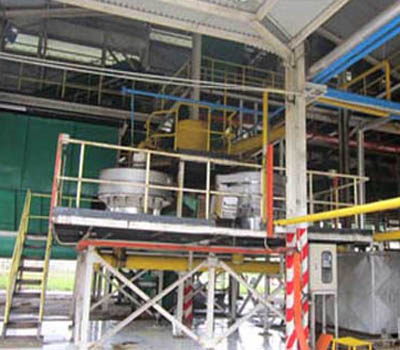How to treat the waste in palm oil processing plant?
A large number of wastes, such as palm kernel shells, empty fruit clusters and wastewater in palm oil processing plant, will be produced in the production process of palm oil plant. The disposal of these wastes is not only related to environmental protection, but also related to the reuse of resources and the development and utilization of energy.

1. Utilization of the palm kernel shell
Palm kernel shells and compressed fibers are usually regarded as solid waste, but in fact, they are very high-quality fuel resources. In the traditional treatment, these wastes are used as fuel for steam boilers to generate steam to drive turbines to generate electricity. This method can not only meet the energy demand of palm oil factory itself, but also effectively reduce the impact of waste accumulation on the environment.
2. Handling of empty fruit clusters
Empty fruit bunches are another common by-product in palm oil production. Although its combustion efficiency is lower than that of palm kernel shells and fibers, empty fruit clusters can still be used as fuel or directly transported to palm plantations as natural fertilizers. This treatment can improve soil quality and promote the development of agricultural circular economy.
3. Treatment of wastewater in palm oil plant
Generally speaking, when a palm oil factory processes a ton of fresh fruit skewers, it will produce 600-700 kilograms of wastewater. If these wastewater are discharged directly without treatment, it will cause serious pollution to the environment. At present, anaerobic digestion is a common and effective treatment method. Through anaerobic digestion, organic matter in wastewater can be converted into biogas, which can be used for gas turbine or gas engine to generate electricity. This not only reduces the impact of wastewater on the environment, but also realizes the recycling of energy.
At present, palm kernel shells and fibers are mainly used for energy production in factories, while empty fruit clusters are mostly used as fertilizers or directly discarded. However, the palm oil industry has great potential. By optimizing waste utilization technology, power production can be further increased in the future, and excess power can be transmitted to the public power grid. This will provide new help for the development of clean energy, and at the same time effectively reduce the burden of waste on the environment.
In a word, the palm oil plant needs more innovation and technical input in waste treatment to achieve the goal of efficient utilization of resources and sustainable development.
